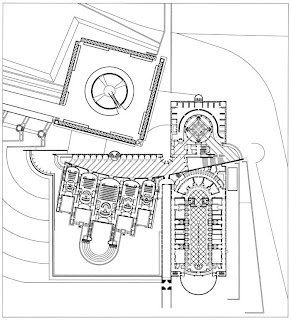Lawmakers asked the state's fabled Budget Digest to fund at least$100 million worth of projects and programs, but they'll likely endup with less than a third of that to divvy up.
Now meeting in an interim session, legislators must parcel outavailable funding before July 1, the start of the budget year. Untilthe process concludes, probably during next month's interim meeting,it is impossible to predict exactly what will be spent.
But it's clear that cuts in the overall budget will hinder digestspending.
Many of those 39 budget lines have been reduced in the 2003-04budget, which will grow by only $36 million over the current yeardespite soaring payments for pensions, health care and insurancecosts.
The current budget, for instance, allotted $4.5 million forcenters and programs in the Bureau of Senior Services. That wasparceled out in the Budget Digest to more than 80 aging-relatedefforts across the state. Next year's budget reduces that line itemby $600,000, meaning some of those programs will come up empty.
Another example: this year's digest spent $1.4 million on morethan 300 fairs and festivals, about a third of that through theDepartment of Agriculture, a traditional source. The 2003-04 budgethas no funds for that line item, meaning all fair spending will haveto come through the Division of Culture and History.
"Legislators are either deaf or blind," said AgricultureCommissioner Gus Douglass. "They didn't include me when they movedall of these moneys out of the department. It was just a slam-bangdecision."
The budget cuts did not stop lawmakers from seeking funding formost of these fairs and festivals in the new digest. Requests forsuch items total at least $1.6 million.
The overall tally of more than 2,000 requests submitted bylawmakers easily exceeds $100 million, but they often overlap.
No fewer than 27 legislators, for instance, each requested $5,000for the "Alliance for West Virginia Champion Communities," an AlumCreek-based community action group.
Staff for Senate Finance Chairman Walt Helmick, D-Pocahontas, havebeen able to eliminate duplicate requests from that chamber to arriveat a $69 million price tag. Lincoln County hosts the largest share ofBudget Digest requests on the Senate's roster, at $5.8 million.
Facing requests from 100 delegates, House staff have yet to crunchtheir numbers. A review of those requests shows at least $30 millionworth of projects not on the Senate's list.
Hardy County, for instance, is earmarked for only $5,000 on theSenate's list of requests. The county is home to House FinanceChairman Harold Michael, a Democrat, whose own requests total $4.2million. Requests from Michael and other Hardy delegates total atleast $1 million.
An analysis of the 2002-03 Budget Digest identified a home countyfor all but 29 of the more than 1,700 projects listed for funding.Perhaps not surprisingly, projects based in Kanawha County got thelargest share, about $2.3 million.
But that sum amounts to less than $12 per resident. Hardy County,by contrast, received nearly $111 for each of its residents.Pendleton County, also part of Michael's district, saw $134 perperson, the most of any county.
Funding earmarked for nearby Hampshire County totaled $1.7million, or $86 per person. But House Education Chairman JerryMezzatesta, D-Hampshire, said the digest often lists funding alreadydedicated in the regular budget bill.
Of the county's 2002-03 funding, $808,275 was allotted to itsBoard of Education. But the budget had already allotted that amountto the county's Potomac Center for developmentally challengedchildren. The same is true for much of the education-related spendingfound in the Budget Digest, Mezzatesta said.
"In actuality, most of the money is already spent," he said.

Комментариев нет:
Отправить комментарий